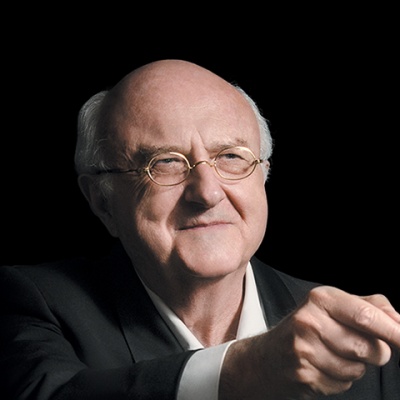
Vladimir Cosma
by Yuri German One of France and Europe's most distinguished film composers, Vladimir Cosma scored more than 150 films and TV productions. Although he enjoyed almost immediate success in comedies, he continued to experiment with different styles and genres, and this versatility brought him wide international acclaim. Born on April 13, 1940, in Bucharest, Romania, to the family of a renowned conductor and concert pianist, Cosma studied music from his early years onward, eventually attending the National Conservatory in Bucharest (from which he graduated with two first prizes, for violin and composition). In 1963, he went to Paris to advance his studies at the French Conservatory, where, in addition to his classical background, he developed an interest in jazz, folk music, and film music. Between 1964 and 1967, he toured the world as a concert violinist, visiting the U.S., Latin America, and Southeast Asia. A meeting with popular film composer Michel Legrand became the first step toward his future career. Cosma always credits Legrand's importance, though he also admits the influence of such composers as Burt Bacharach and Henry Mancini. In 1967, he began his long-running partnership with film director Yves Robert, for whom he scored the international hits Alexandre (1967), The Tall Blond With One Black Shoe (1972), and The Return of the Tall Blond (1974), as well as the critically acclaimed dramas My Father's Glory and My Mother's Castle (both in 1990). He also wrote the music for several comedies directed by Francis Veber and Gerard Oury, starring such hit French comedians as Pierre Richard and Louis de Funes. One of his biggest international hits was the Erik Satie-inspired soundtrack for Diva (1981), for which he was awarded his first Cesar (the French equivalent of the Oscar). He received another Cesar for Le Bal (1983), and the main instrumental theme from it became a substantial hit worldwide. Among the other awards given to Vladimir Cosma are the Sept d'Or, the French TV award for L'été '36 (1986), and a Cannes Film Festival award for the entire body of his work.
